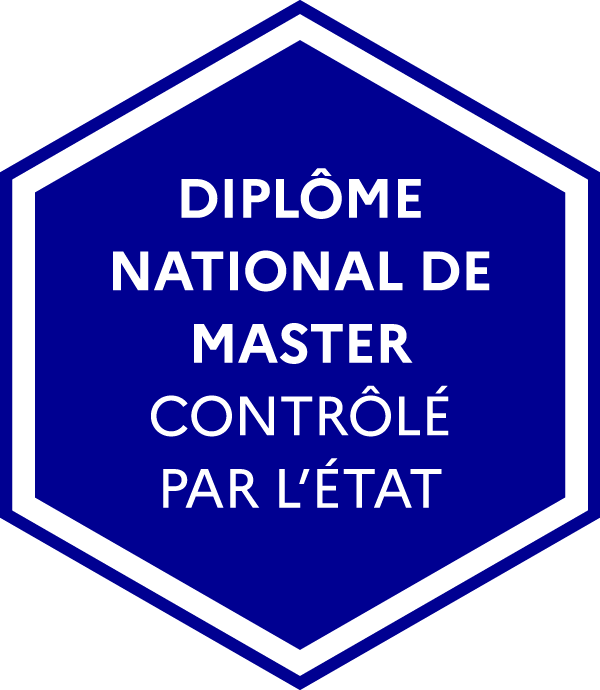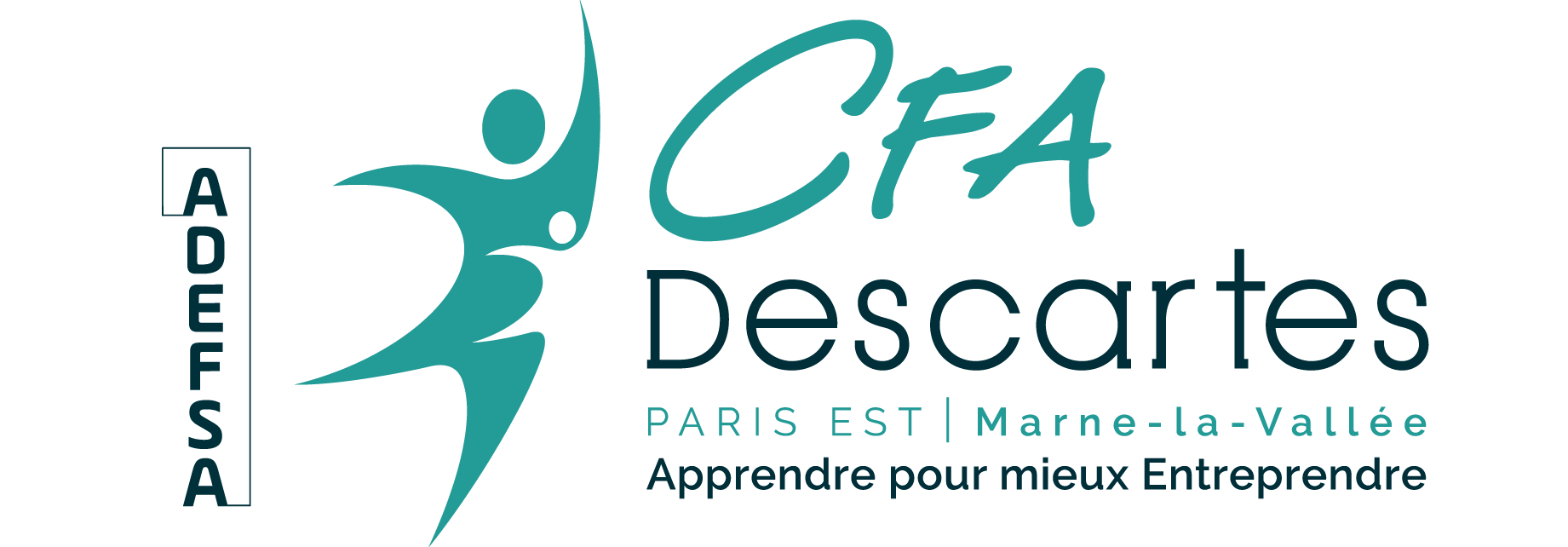Master's degree Healthcare, Welfare and Treatment Pathways

- Campus Marne la Vallée - Serris, Institut Francilien d'Ingénierie des Services (IFIS)
- Sainte-Anne Formation : GHU Paris - Site Sainte-Anne - Pavillon D - 1 rue Cabanis 75014 Paris

Entry requirements
The Master’s in Healthcare, Welfare and Treatment Pathways is primarily open to students who have completed a first-year Master’s in the field of health or healthcare and social welfare. It is also open as a lifelong learning course to professionals in this sector who have management experience and wish to further their skills or take on new responsibilities.
Benefits of the program
The work-study programme allows students to complement their theoretical knowledge with practical training and an initial experience that will facilitate their professional integration. Throughout the course, students are supported by faculty and professionals employed in healthcare and social welfare organisations.
Teaching is based on numerous practical case studies and group work.
Acquired skills
The course is designed to enable students to develop the necessary skills for administrative functions in a healthcare service or establishment, or managerial roles in a healthcare and social welfare organisation.
These skills cover both management and the legal and regulatory requirements of careers in health and the healthcare and social welfare sector.
Capacities
32
Course venue
Other course venue
Sainte-Anne Formation : GHU Paris - Site Sainte-Anne - Pavillon D - 1 rue Cabanis 75014 Paris
Your future career
The Master's degree focuses on professional skills and enables students to enter working life directly in positions of management and responsibility in health or social welfare establishments or services. They may also be involved in coordinating treatment pathways.
Our graduates go on to become nursing home directors, HR managers, quality managers, project managers, coordinators, etc.
Professional integration
18 months after the end of their training, 95% of graduates are in jobs related to their qualification (OFIPE statistics; Université Gustave Eiffel).
Our graduates go on to become nursing home directors, HR managers, quality managers, project managers, etc.
Study objectives
The Healthcare, Welfare and Treatment Pathways Master’s equips students with an overall understanding of the social, institutional, economic and managerial challenges of healthcare. It enables them to initiate, support and enhance ongoing assessment policies for service quality.
Major thematics of study
The degree focuses on two main areas of study: knowledge of the legal and administrative framework of the health and social welfare sector, and management.
During the course, students acquire the knowledge required to take on roles of responsibility in this sector. At the end of their studies, they are familiar with the main elements of health policy; the changing health needs of communities; the administrative structure that governs this sector; governance and financing practices; quality; ethics, etc. In managerial terms, they acquire skills in all management disciplines: HRM; project management; financial management; strategy; law; sociology; information systems.
Calendar
The course schedule alternates between one week at the university and two weeks in a healthcare institution, between September and June.
Minimum work placement duration: 16 weeks.
Options
The optional unit allows students to specialise according to their career objectives. They can choose to study either health networks (using the examples of gerontology and oncology) or the logistics required for exercising positions of responsibility in the healthcare sector.
Semester 3
| Courses | ECTS | CM | TD | TP |
|---|---|---|---|---|
|
Management des organisations
Par l'UE "Management des organisations", les étudiants acquièrent les compétences nécessaires pour gérer les organisations du secteur de la santé et du médico-social: gestion des ressources humaines, droit, gestion de projet, gestion financière, stratégie et sociologie des organisations. | 15 | |||
|
Management de projet
Teaching language FRANÇAIS / FRENCH | 3 | 10.5h | 10.5h | |
|
Analyse des organisations et communication
Teaching language FRANÇAIS / FRENCH | 3 | 14h | 14h | |
|
Management des ressources humaines
Teaching language FRANÇAIS / FRENCH | 3 | 10.5h | 10.5h | |
|
Droit et responsabilité juridique
Teaching language FRANÇAIS / FRENCH | 2 | 10.5h | 10.5h | |
|
Gestion et management stratégique
| 4 | 14h | 14h | |
|
Questions de santé
Par l'UE "questions de santé", les étudiants acquièrent les compétences nécessaires pour se situer dans le cadre juridico-administratif des organisations du secteur sanitaire et médico-social, pour gérer un processus qualité et appliquer les principes éthiques face aux usagers. | 9 | |||
|
Evaluation et qualité
Teaching language FRANÇAIS / FRENCH | 3 | 10.5h | 10.5h | |
|
Ethique et place des usagers
Teaching language FRANÇAIS / FRENCH | 2 | 10.5h | 10.5h | |
|
Prévention des maltraitances et participation des usagers et des personnes concernées
Teaching language FRANÇAIS / FRENCH | 4 | 14h | 14h | |
|
Professionnalisation
Par l'UE "professionalisation", les étudiants acquièrent des compétences utiles à leur entrée dans le monde professionnel: connaissance des systèmes d'information ainsi que le l'anglais appliqué au secteur sanitaire. En outre, un ECTS permet à l'étudiant de personnaliser sa formation en fonction deses besoins d'approfondissement ou de son projet professionnel. | 6 | |||
|
Système d'information en santé
Teaching language FRANÇAIS / FRENCH | 3 | 14h | 14h | |
|
Anglais médico-social
Teaching language ANGLAIS / ENGLISH | 2 | 28h | ||
|
Enseignement complémentaire et d'ouverture
Teaching language FRANÇAIS / FRENCH | 1 | 10.5h | 10.5h |
Semester 4
| Courses | ECTS | CM | TD | TP |
|---|---|---|---|---|
|
Politique de santé et gouvernance
Par l'UE "politique de santé et gouvernance", les étudiants acquièrent les connaissances nécessaires à l'exercice de responsabilités dans le secteur médical et médico-social: cadre législatif, politiques de santé publique, relations avec les tutelles, financement, etc. | 13 | |||
|
Gouvernance et management dans le secteur sanitaire
Teaching language FRANÇAIS / FRENCH | 3 | 14h | 14h | |
|
Gouvernance et management dans le médico-social
Teaching language FRANÇAIS / FRENCH | 3 | 10.5h | 10.5h | |
|
Choix nationaux, santé publique, coordination
Teaching language FRANÇAIS / FRENCH | 4 | 14h | 14h | |
|
Gestion des risques
Teaching language FRANÇAIS / FRENCH | 3 | 10.5h | 10.5h | |
|
UE Optionnelle: réseaux de santé ou logistique
L'UE optionnelle permet aux étudiants de se spécialiser selon leur projet professionnel. Ils ont ainsi le choix entre un enseignement sur les réseaux de santé (à travers l'exemple de la gérontologie et la cancérologie) et la logistique nécessaire à l'exercie de responsabilités dans le secteur sanitaire. | 4 | |||
|
Parcours de santé
Teaching language FRANÇAIS / FRENCH | 4 | 21h | ||
|
Logistique
Teaching language FRANÇAIS / FRENCH | 4 | 21h | ||
|
Initiation à la recherche
L'UE "initiation à la recherche" amène les étudiants à prendre connaissance de différentes démarches de recherche et à les mettre en application à travers leur mémoire. Une attention particulière est portée sur la recherche centrée usagers et ses débouchés sur l'innovation en santé. | 13 | |||
|
Recherche et innovation en santé
| 1 | 10.5h | 10.5h | |
|
Mémoire universitaire et professionnel
| 12 | 14h |
Gaëlle DURAND
Isabelle LE GOUILL
Partners


